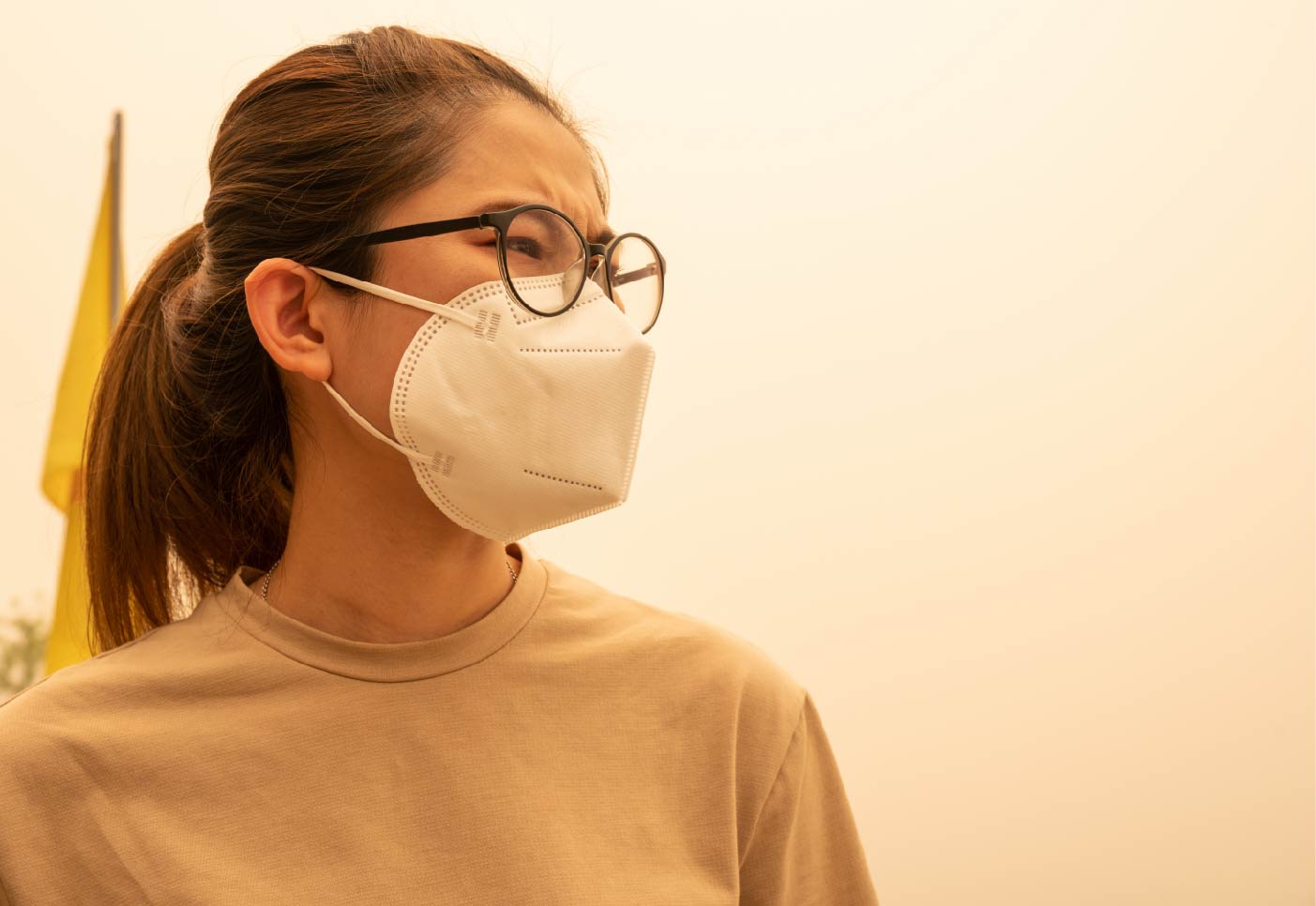Wildfire smoke is dangerous and hazardous to your health, and the risks are even greater this year.
So far in 2023, wildfires had scorched nearly 2 million acres across the U.S., according to the National Interagency Fire Center. To the north in Canada, they're experiencing the worst wildfire season on record with tens of thousands of people being driven out of their homes. Those raging wildfires can create hazardous air-quality conditions across the country, including the Pacific Northwest.
Even if there aren’t active wildfires in your area, you may not be out of the woods. Wildfire smoke doesn’t know boundaries and goes where the wind takes it. Smoke can travel across states and countries, sometimes even thousands of miles. Much of the smoke we've experienced across Washington State and Idaho has been from fires north of the border.
As wildfire season continues to heat up, there are ways to protect you and your family from its dangerous effects.
How does wildfire smoke affect your health?
Wildfires consume everything in their path—from vegetation to buildings to plastics and more. As that happens, scads of airborne chemicals are released creating a complex mix of gases and pollutants that can affect your health in a variety of ways, from relatively minor reactions like eye irritation and a runny nose to more serious health conditions.
The biggest health threats from wildfire smoke are carbon dioxide and microscopic particles that can find their way deep into the lungs.
- Carbon dioxide decreases the body’s oxygen supply, which can prompt headaches and reduced alertness and may aggravate certain heart conditions, such as angina.
- Fine particles can cause a variety of serious issues, including:
- Bronchitis
- Reduced lung function
- Increased risk of an asthma attack
- Heart attack
- Stroke
For certain individuals, the effects of wildfire smoke can be especially devastating.
Who is most at risk of getting sick from wildfire smoke?
Wildfire smoke is a hazard for everyone, regardless of your overall health. Some people, however, are at greater risk, including:
- People with asthma and other respiratory diseases
- People with cardiovascular disease
- Allergy sufferers
- Children under the age of 18
- Adults over the age of 65
- Pregnant women
- Outdoor workers
People with or recovering from COVID-19 may also be at increased risk because of compromised heart and lung function. According to a study conducted by researchers at the Harvard Chan School, the John A. Paulson School of Engineering and Applied Sciences, and the Environmental Systems Research Institute in Redlands, California, the increase in fine particulate air pollution from wildfire smoke may have been associated with thousands of COVID-19 cases and deaths in Washington, Oregon and California in 2020.
What are the symptoms of breathing wildfire smoke?
Breathing in wildfire smoke can have immediate health effects, although symptoms can also appear as late as 24 to 48 hours after exposure. Typical symptoms and effects of wildfire smoke exposure include:
- Coughing
- Trouble breathing normally
- Stinging eyes
- A scratchy throat
- Runny nose
- Irritated sinuses
- Wheezing and shortness of breath
- Chest pain
- Headaches
- Asthma attack
- Fatigue
- Rapid heartbeat
If you have any of the above symptoms and they are minor, there’s no reason to seek medical attention. However, if you have asthma and the outdoor air quality causes health issues that can’t be managed at home, such as with a rescue inhaler, you should schedule an Indigo virtual visit. Our clinicians will take the time to understand your symptoms and provide the necessary steps to help you recover.
How can I protect myself from wildfire smoke?
If you live in or plan to visit an area where wildfire smoke is present, it’s important to take steps to protect yourself from its adverse effects.
- Keep track of air quality in your location. Your smartphone makes it easy to keep tabs on air quality in your area and limit your exposure to smoky conditions. Air Quality Index (AQI) levels are typically included in weather apps, or you can download the EPA’s free AirNow mobile app. The simple interface allows you to quickly check current and forecasted air quality info.
- Avoid strenuous exercise or exertion. That goes for activities indoors and outside.
- Head to the great indoors. When wildfire smoke is present, the best place to be is inside. To protect indoor air quality, you’ll want to:
- Keep doors and windows closed.
- Avoid sources of indoor pollution, such as burning candles, vacuuming or using aerosol sprays.
- Crank up the air conditioner, if you have one, and set it to “recirculate”. Change filters regularly based on manufacturer recommendations.
- Consider getting an air purifier with a high-efficiency particular air (HEPA) filter. Air cleaners can reduce harmful particulates by as much as 85 percent, according to the EPA.
Beat the heat: If you don’t have a/c and your house is too hot, plan to stay elsewhere where you can safely remain indoors, especially if you or a loved one are in a group that is sensitive to smoke. Wildfires aren’t the only summertime hazard. It’s also important to protect yourself against heat-related conditions, including heat stroke and heat exhaustion.
- Include the right masks with emergency supplies. If you need to be outside in smoky air or ash-covered areas, the EPA recommends wearing a tight-fitting N95 or N100 mask (with two straps) approved by the National Institute of Occupational Safety (NIOSH). (Masks should have N95, N100 or NIOSH printed on them.) Surgical masks, single-strap masks, bandanas and wet towels will not protect you from inhaling dangerous, tiny particles. You can learn more about NIOSH-approved respirators here.
- Keep inhalers handy. If you have asthma, make sure you always have a rescue inhaler nearby.
- Nurture your overall wellness. Good health practices can reduce your susceptibility to respiratory infections and other wildfire smoke-related health effects. Be sure to get enough sleep, stay hydrated and eat a healthy and well-balanced diet.
Indigo can help you breathe easier
If you’re concerned about wildfire smoke or feel the effects of smoke exposure, it’s important to seek medical advice. It’s particularly critical if you have asthma or another respiratory condition, COVID-19 or cardiovascular disease.
The clinicians at Indigo Urgent Care can address your concerns, offer guidance about medications and help create an action plan to manage your chronic illness when wildfire smoke is in the air.
With our easy online scheduling, video and chat visits and 38 neighborhood locations open 8 am to 8 pm every day, Indigo makes it simple and seamless to get the care you need, when and where you need it.
It’s important to listen to your body, especially if you have a condition that puts you at higher risk. If you or a loved one experiences any of the following symptoms seek medical care as soon as possible:
- A cough that is persistent or worsening
- Shortness of breath beyond what is usually experienced
- Chest pain or tightness
- Significant weakness or fatigue


